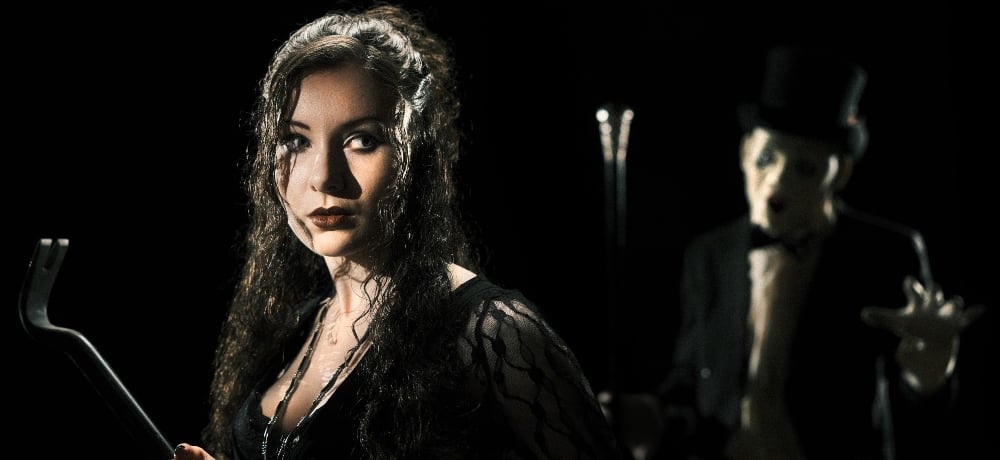





I’ll admit, I was initially skeptical when I heard that a US version of the Mexican horror movie, We Are What We Are, was in the works. Jorge Michel Grau’s original film was a blisteringly powerful saga of cannibalism, poverty and alienation, and I was afraid any remake would prove to be a pallid, bloodless imitator of the previous film.
I’m happy to report that Jim Mickle’s We Are What We Are has proved my preconceptions about remakes wrong on every level: the film is poetic, innovative and utterly unforgettable.
Rather than duplicating the content of the original, Mickle’s “re-imagining” cuts right to the heart of Americana, exposing the darkness behind repressive, patriarchal families, fundamentalist Christianity, and certain aspects of US history. The film tells the story of the Parkers, a family with a macabre secret. Once a year, every year, they slaughter, kill and eat another person, a tradition started after their Pilgrim ancestors resorted to cannibalism. After the mother of the family dies, domineering father Frank (Bill Sage) insists eldest daughter Iris (Ambyr Childers) continue the ritual. Soon, Iris and younger sister Rose (Julia Garner) find themselves torn between loyalty to the family and a desire for freedom.
Set in rainy woods of upstate New York, We Are What We Are has a dream-like, slow burn atmosphere. Mickle conveys a sense of timelessness, and a real feel for the landscape and its history. Flashbacks to the early Parker family, who turn to cannibalism after nearly starving, are also incredibly effective. After recent archeological discoveries confirming that early Jamestown settlers really did resort to cannibalism in times of desperation, the film’s suggestion that civilization itself is founded on basic, brutal, survivalist values also feels oddly topical.
Ambyr Childs and Julia Garner are absolutely mesmerizing as Iris and Rose, two sisters tentatively drawn to the outside world, but inextricably bound by the knowledge that they are different. While the film encourages us to identify with the sisters, a moving subplot involving local Doc Barrow (Michael Parks) and his hunt for his missing daughter ensures that we feel for the Parker’s victims every bit as strongly as we feel for Iris and Rose. Mickle never shies away from showing the human cost of what the Parkers are doing, and this decision is to the film’s credit, leading to a much more powerful, complex narrative.
With their fragile blonde beauty and buttoned up dresses, Iris and Rose seem worlds away from the “hillbilly” cannibals of older American films such as The Hills Have Eyes, although it’s fair to say that father Frank has more than a ring of Papa Jupiter about him. However, the thing that really sets We Are What We Are apart from classic cannibal films is that the Parkers’ annual act of cannibalism isn’t portrayed as savage and bestial, but as something controlled and civilized. For the Parkers, cannibalism is as much a part of family life as Thanksgiving or Christmas, and the film can almost be interpreted as a dark satire against twisted religious belief and an unyielding veneration for tradition.
Fans of Grau’s original film would be well advised to approach We Are What We Are prepared for something entirely new. Comparisons to the previous version feel somewhat redundant, as Mickle’s hauntingly beautiful, visceral film is a great piece of work in its own right, with original characters, an original storyline and a new all-American resonance. Unswervingly grim, authentically harrowing and yet surprisingly lyrical at the same time, We Are What We Are is without a doubt one of the most memorable horror films I’ve seen so far this year.
Film Score: 4/5